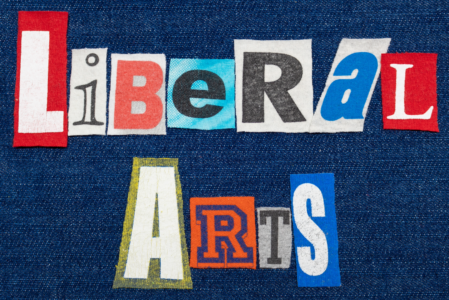Exploring Progressivism: The Most Liberal Colleges in the United States

Liberal Arts Education
Liberal arts education plays a vital role in shaping the minds of students and preparing them for the complexities of the real world. With a focus on critical thinking, creativity, and intellectual versatility, liberal arts colleges provide a unique and enriching educational experience.
Benefits and features of a liberal arts curriculum
A liberal arts curriculum offers a wide range of benefits and features that set it apart from other forms of education. One of the key advantages is the emphasis on interdisciplinary learning. Students are encouraged to explore diverse subjects, such as literature, philosophy, mathematics, and social sciences. This approach fosters a holistic understanding of the world and promotes intellectual growth.
Furthermore, a liberal arts education hones essential skills like problem-solving, communication, and analytical thinking. By tackling complex issues from multiple perspectives, students develop a broad skill set that is highly sought after by employers in today’s competitive job market.
Importance of critical thinking in liberal arts education
Critical thinking is at the core of a liberal arts education. Students are taught to question assumptions, challenge ideas, and analyze information critically. This ability to think independently and evaluate arguments critically is crucial not only for academic success but also for personal and professional development.
In a liberal arts setting, students are encouraged to engage in rigorous debates and intellectual discussions. This fosters a culture of curiosity and open-mindedness, enabling students to broaden their horizons and develop informed opinions.
Wide range of subjects and disciplines offered at liberal colleges
Liberal arts colleges offer an extensive selection of subjects and disciplines, catering to students with diverse interests. From humanities and social sciences to natural sciences and fine arts, there is something for everyone.
Whether a student is passionate about literature, politics, or economics, they can find a program that aligns with their interests. This broad spectrum of subjects allows students to explore different areas of knowledge and discover their true passions.
The Most Liberal Colleges in the United States – Just Schools
Diversity and Inclusion
As part of their commitment to creating inclusive environments, liberal colleges prioritize diversity and inclusion on their campuses.
A. Prioritization of diversity and inclusion at liberal colleges
Liberal colleges understand the importance of diverse perspectives in fostering a well-rounded education. They actively strive to create an environment that welcomes students of all backgrounds and identities.
By prioritizing diversity, these colleges aim to create a campus that reflects the broader society. This means actively seeking out students from underrepresented groups and providing them with the necessary support and resources to thrive.
B. How liberal colleges foster diversity and support marginalized communities
Liberal colleges go beyond mere rhetoric and take tangible steps to support marginalized communities. They provide resources such as scholarships, mentorship programs, and counseling services specifically designed to address the unique challenges that these communities may face.
Furthermore, these colleges often establish affinity groups, student organizations, and centers dedicated to promoting diversity. These spaces allow students to connect with others who share similar experiences and provide a sense of belonging.
In addition to this, liberal colleges actively work to recruit diverse faculty members, recognizing the importance of having educators from different backgrounds who can bring diverse perspectives into the classroom.
C. Promotion of multiculturalism on liberal college campuses
Liberal colleges understand the value of multiculturalism and strive to promote it on their campuses. They offer a wide range of cultural events, workshops, and conferences that celebrate various ethnicities, religions, and traditions.
Through these activities, students have the opportunity to learn about different cultures, engage in meaningful dialogue, and develop a deeper appreciation for diversity. This helps create a vibrant and inclusive campus environment.
Course Offerings and Academics
Liberal colleges pride themselves on their diverse and comprehensive academic programs. With a focus on developing well-rounded individuals, these institutions offer a wide range of courses designed to cater to different interests and areas of study.
Overview of Academic Programs
Liberal colleges provide an extensive selection of academic programs, spanning various disciplines such as humanities, social sciences, natural sciences, and fine arts. These programs ensure that students have the opportunity to explore their passions and gain a well-rounded education.
Broad Range of Subjects
From philosophy to political science, literature to environmental studies, liberal colleges boast an array of subjects that cater to the diverse interests of their students. Whether you have a penchant for the arts or a fascination with the sciences, you can find a course that aligns with your passion at these institutions.
Teaching Methodologies and Student-Faculty Interactions
Liberal colleges prioritize engaging and interactive teaching methodologies. Professors encourage critical thinking, lively discussions, and intellectual curiosity among their students. With small class sizes, these colleges foster close-knit communities that promote meaningful student-faculty interactions.
Academic Environment
The academic environment at liberal colleges is both rigorous and supportive. Students are encouraged to pursue their academic interests and develop their own paths of inquiry. With a focus on interdisciplinary studies and intellectual exploration, these institutions foster an environment that nurtures creativity, critical thinking, and curiosity.
Campus Culture and Activism
In addition to their emphasis on liberal arts education and political ideology, liberal colleges in the United States are known for their vibrant campus culture and strong tradition of student activism. These campuses serve as a breeding ground for social justice movements, where students are encouraged to voice their opinions and actively strive for change.
A. Student activism at liberal colleges
Student activism is deeply ingrained in the DNA of liberal colleges. These institutions have a long history of producing graduates who go on to become influential leaders and activists in various fields. Students at liberal colleges are known for their passion, commitment, and desire to create a more just and equitable society.
- They organize protests, rallies, and sit-ins to raise awareness about pressing social issues.
- They actively engage in political campaigns and grassroots movements.
- They form student organizations and clubs to promote social justice and equality.
B. Social justice movements on campuses
Liberal colleges provide a fertile ground for social justice movements to thrive. These campuses are known for their inclusivity and support for marginalized communities. Students come together to address a wide range of issues, including:
- Racial justice
- Gender equality
- LGBTQ+ rights
- Environmental activism
- Economic justice
Through their activism, students contribute to creating an environment that fosters empathy, understanding, and acceptance.
C. The role of liberal colleges in shaping political and social discourse on campus
Liberal colleges play a crucial role in shaping the political and social discourse on their campuses. They provide a platform for intellectual exchange, critical thinking, and open dialogue. Professors and students engage in spirited discussions inside and outside the classroom, challenging each other’s perspectives and promoting a deeper understanding of complex issues.
Guest speakers, lectures, and workshops further enrich the campus discourse. These events bring in renowned scholars, activists, and thought leaders who share their insights and experiences, inspiring students to become active participants in shaping a better society.
Higher Education Institutions
Higher education institutions in the United States come in all shapes and sizes, and they each have their own unique characteristics and ideologies. Some colleges and universities are known for their commitment to liberal values, encouraging open-mindedness, diversity, and progressive thinking. In this blog post, we will explore some of the most liberal colleges in the United States and what makes them stand out in the world of academia.
- Oberlin College
Located in Oberlin, Ohio, Oberlin College is often regarded as one of the most liberal colleges in the country. Founded in 1833, it was the first college to admit students of all races and the first to grant bachelor’s degrees to women. Oberlin is known for its strong emphasis on social justice and activism, making it a hub for students passionate about making a positive impact on the world.
- Swarthmore College
Swarthmore College, situated in Swarthmore, Pennsylvania, has a reputation for its rigorous academics and commitment to liberal arts education. The college is recognized for its Quaker heritage, which emphasizes values such as peace, equality, and social justice. Swarthmore encourages students to engage in critical thinking and community service, fostering a culture of social responsibility.
- Hampshire College
Hampshire College in Amherst, Massachusetts, takes a unique approach to education. Students are encouraged to design their own curricula, allowing them to explore their interests and passions freely. This experimental approach to learning aligns with progressive ideals, emphasizing personalized education and creative thinking.
- Evergreen State College
Located in Olympia, Washington, Evergreen State College is renowned for its interdisciplinary approach to education. Students at Evergreen often collaborate on projects that address real-world issues, and the college places a strong emphasis on sustainability, diversity, and social justice. Its commitment to progressive values is reflected in its curriculum and campus culture.
- University of California, Berkeley
The University of California, Berkeley, commonly known as UC Berkeley, is a public research university known for its strong liberal tradition. It has a rich history of activism and free speech, making it a breeding ground for social and political movements. UC Berkeley’s commitment to diversity, inclusivity, and academic excellence has solidified its reputation as one of the most liberal institutions in the nation.
- Reed College
Nestled in Portland, Oregon, Reed College promotes intellectual exploration and academic freedom. The college’s Honor Principle encourages honesty and responsibility while fostering a community that values individuality and open dialogue. Reed’s focus on critical thinking and discussion makes it a haven for liberal-minded students.
These colleges and universities are just a few examples of the many institutions in the United States that embrace liberal values and ideologies. They provide environments where students can engage in open-minded discussions, pursue their passions, and work towards positive change in society. Whether you identify as liberal or not, these institutions play a vital role in shaping the diverse landscape of higher education in America, emphasizing the importance of critical thinking, social justice, and progressive ideals.
